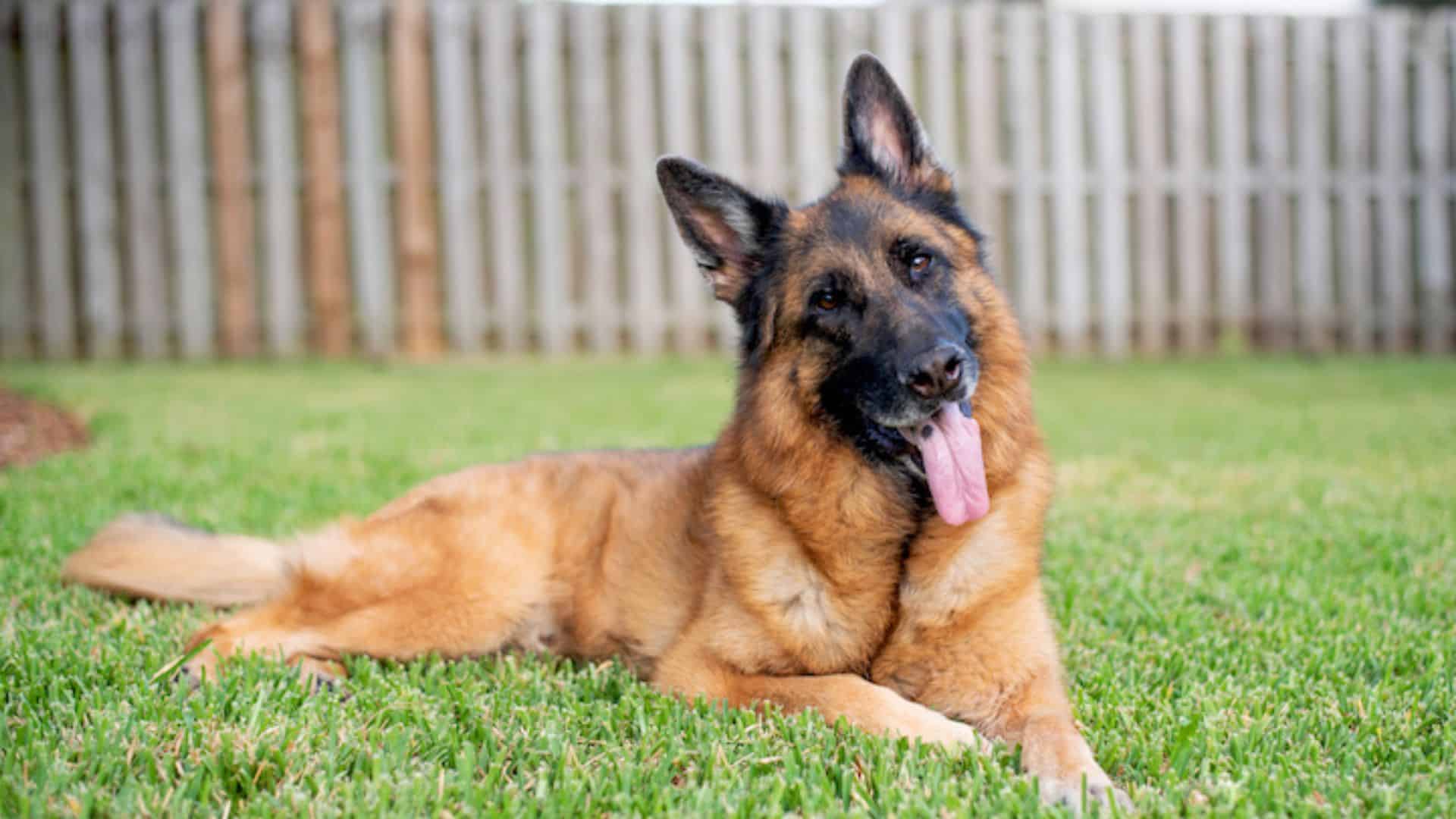When my friend noticed her German Shepherd’s eyes rolling back, she completely panicked. As I did understand the reasons for her reaction, I had to calm her down in order for her to assess the situation correctly.
She calmed down and phoned her vet, making an appointment with him as soon as possible. This is the best thing a dog owner can do when noticing any strange behavior with their dogs.
There are many reasons why a German Shepherd’s, or any other dog breed, eyes might be rolling back. Even if it looks scary, it doesn’t necessarily mean it is something terrible, but this doesn’t rule out any serious injury either.
Here are some of the medical conditions and other possibilities that might cause your dog’s eyes to roll back:
#1 Eye Injury
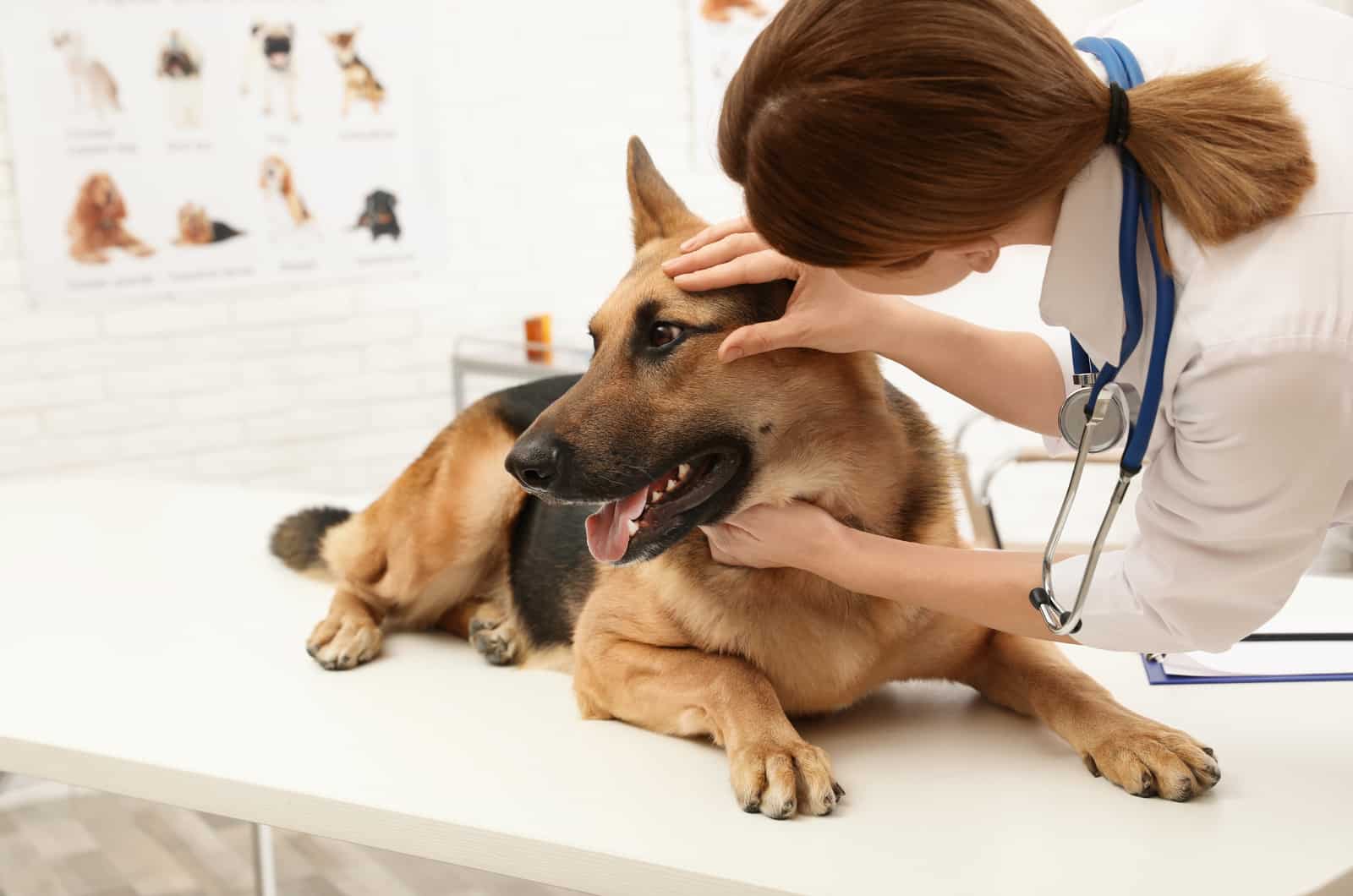
Certain issues, such as a foreign object falling into the eye or more severe trauma, can cause your dog’s eyes to roll back.
The eye injury could also be to the third eyelid. In that case, the eyelid might be coming up over the eye while it is open, making it look as if the eye is rolling into your doggo’s head.
It usually comes up due to some pain elsewhere around the eye. A condition, such as conjunctivitis or a small scratch can trigger the third eyelid, acting like an alarm for we hoomans to notice that something is wrong and to seek professional help.
#2 Seizures
Seizures can be very scary sights, especially if it’s your first time seeing one. Seizures can occur because of different reasons, including epilepsy, head trauma, toxins, or other medical conditions.
During a seizure, your dog can be confused, and overall, start acting strange. He may also start shaking uncontrollably or even become stiff, salivate, lose consciousness, or suddenly collapse.
Additionally, there are instances of silent seizures. With these types of seizures, they might only affect the eyes, causing them to roll back. They often go unnoticed, further pointing out the need for awareness and education.
If you notice your dog having a seizure, it is important not to panic and to give your dog some space. He could become really confused to the point where he won’t even recognize you, and might attack. Wait for the seizure to pass and take him to the vet.
#3 Stroke
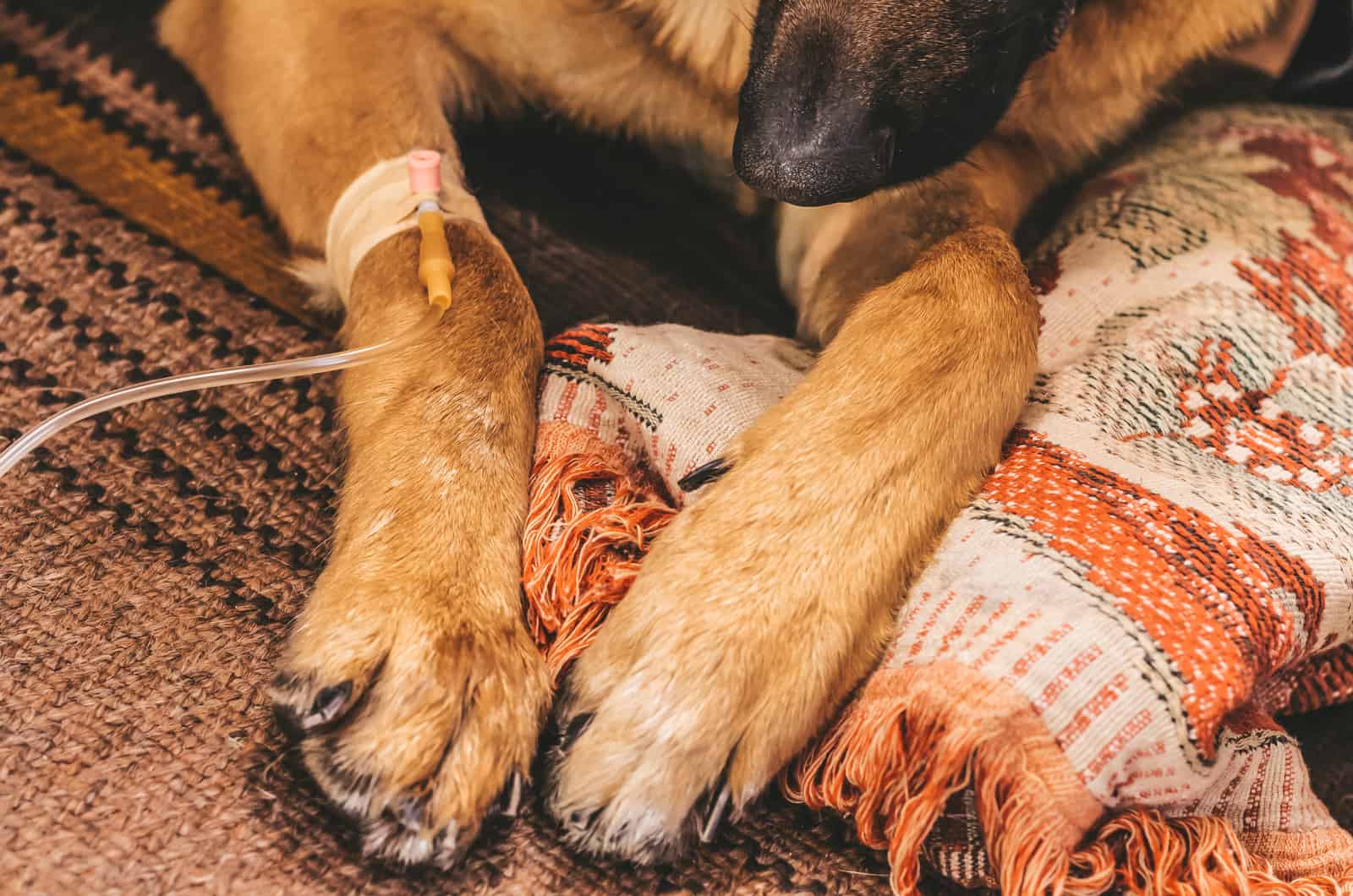
This is one of the most severe health conditions that can make the eyes of your dog roll back.
Strokes are caused when there is a sudden interruption to the blood flow in the brain. No matter the stroke type, it is a very serious condition. It can cause seizures, loss of balance, blindness, as well as abnormal eye movements.
Even though you cannot predict a stroke, you can ensure that it goes by with minimal damage to your dog. As soon as your dog has a stroke, it is important to take him to the vet.
According to an article done by Simon R. Platt, animals recovering from a stroke is probably more spectacular than in humans since animals have a less prominent pyramidal system. [1]
#4 Nystagmus
Nystagmus is essentially a medical condition which causes involuntary eye movement in your dogs. The causes of nystagmus usually have to do with issues in the sensory system, but it can also be due to old age and birth defects.
If you suspect your dog of having nystagmus, look for other symptoms, such as head tilting and circling. They move their head in order to keep up with what their eyes are seeing.
While nystagmus is mostly present from birth and is quite common, it also may suddenly appear.
If it does suddenly appear, take your dog to the vet just to rule out any issues with the nervous system of your furry friend!
#5 Side-Effects To Medication
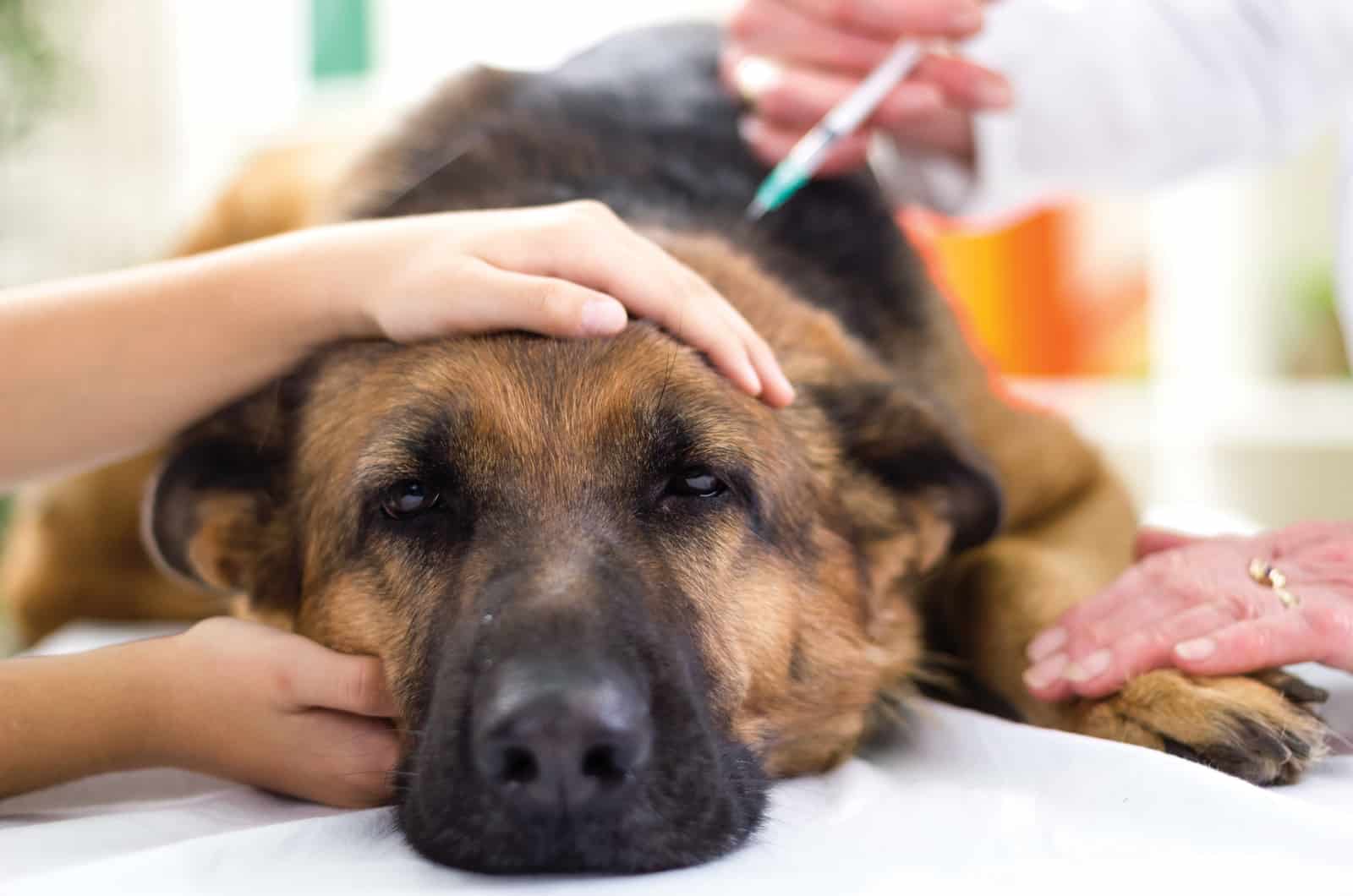
If your doggo is on any medication, one of the common side-effects can be their eyes rolling back. This is often the side-effect of painkillers and tranquilizers.
These types of medications produce a deep state of relaxation, causing your dog not to have full control over what he is doing. With eyes being so sensitive, they can start moving on their own and roll back.
It is important to take time, read, and inform yourself on any medication your dog is taking. This will not only help you understand what they are all about, but will also prepare you for possible situations like this one.
#6 Cherry Eye
Cherry eye is a condition where the gland of the third eyelid becomes prolapsed or displaced, resulting in a visible red mass in the corner of your pup’s eye. This mass causes discomfort to the eye, making it roll back.
The cause of cherry eye is still not fully understood, but it can either occur completely spontaneously or it can be triggered by some trauma, inflammation, or even genetics.
Treatment usually involves medication and massage manipulation, repositioning the gland back into its normal position. This medical procedure has proven to be highly effective. [2]
If you do notice cherry eye in your dog, please take him to the vet in order to prevent other issues that it might bring, such as chronic dry eye or conjunctivitis.
#7 Red Alarm
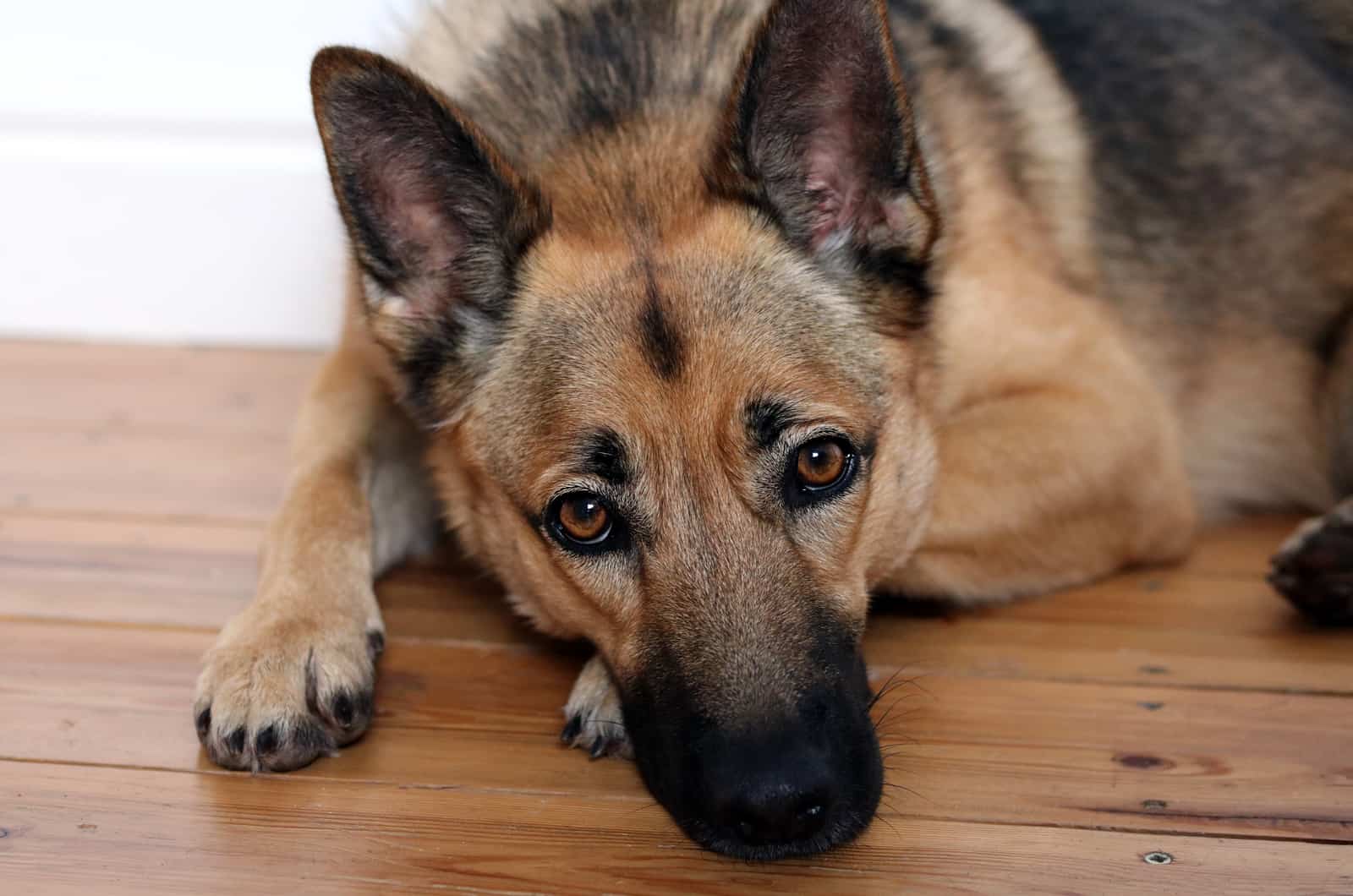
This also may serve as a warning that something is wrong with your doggos body.
It can be a sign of a tumor. Tumors affect the neurological system, which circles back to the nystagmus we were just talking about.
Vestibular disease can also cause the eyes to roll back. Even though this disease mostly affects your dog’s balance, preventing him from walking straight, one of its symptoms is involuntary eye movement.
Strabismus is mostly a hereditary condition, causing the eyes to seemingly go in different directions. However, it can also be due to tumors, head injuries, or the result of vestibular disease.
Cysts can also cause some strange eye movements, affecting the structures within the eye or causing discomfort.
To Sum Up…
Learning about all of the possible reasons why such things happen may help one prepare to know what to do in a certain moment.
As much as this information could have helped my friend, it was important for her to take her German Shepherd to the vet immediately! It is possible that what he has is completely different from the things I listed, and his treatment may be unique for him and his medical history.
He is now in perfect health, and his mom is prepared to take action if this happens again. Let’s cross our fingers that it doesn’t!
References:
- Platt, S. R., & Garosi, L. (2003). Canine cerebrovascular disease: Do dogs have strokes?, Journal of the American Animal Hospital Association, 39(4), 337–342. DOI
- A. Neeraj, Chaudhary R. N., Pandey A. K., Potliya S., Singh K., Surgical Management of Cherry Eye in Dogs. Indian Journals (2014).
